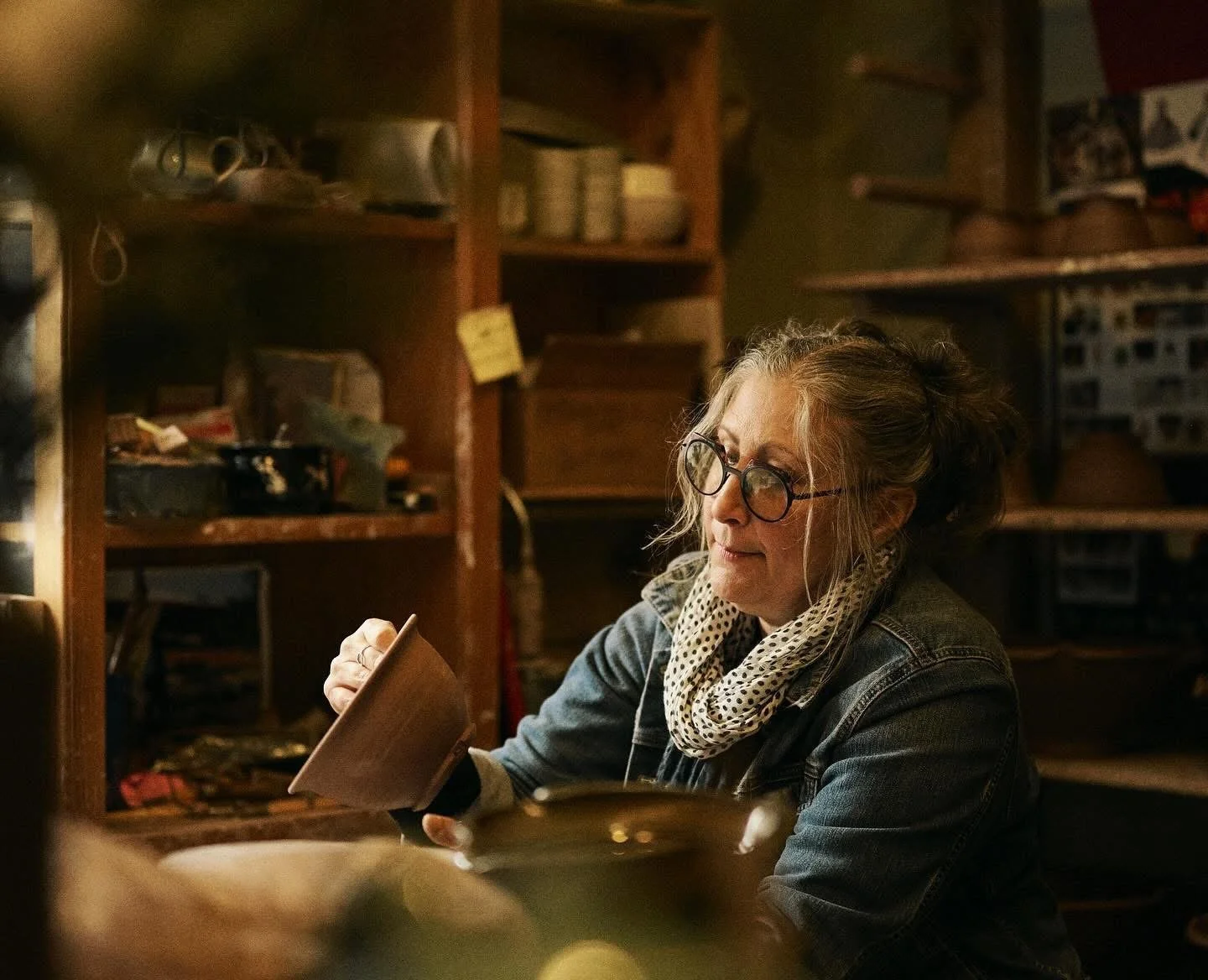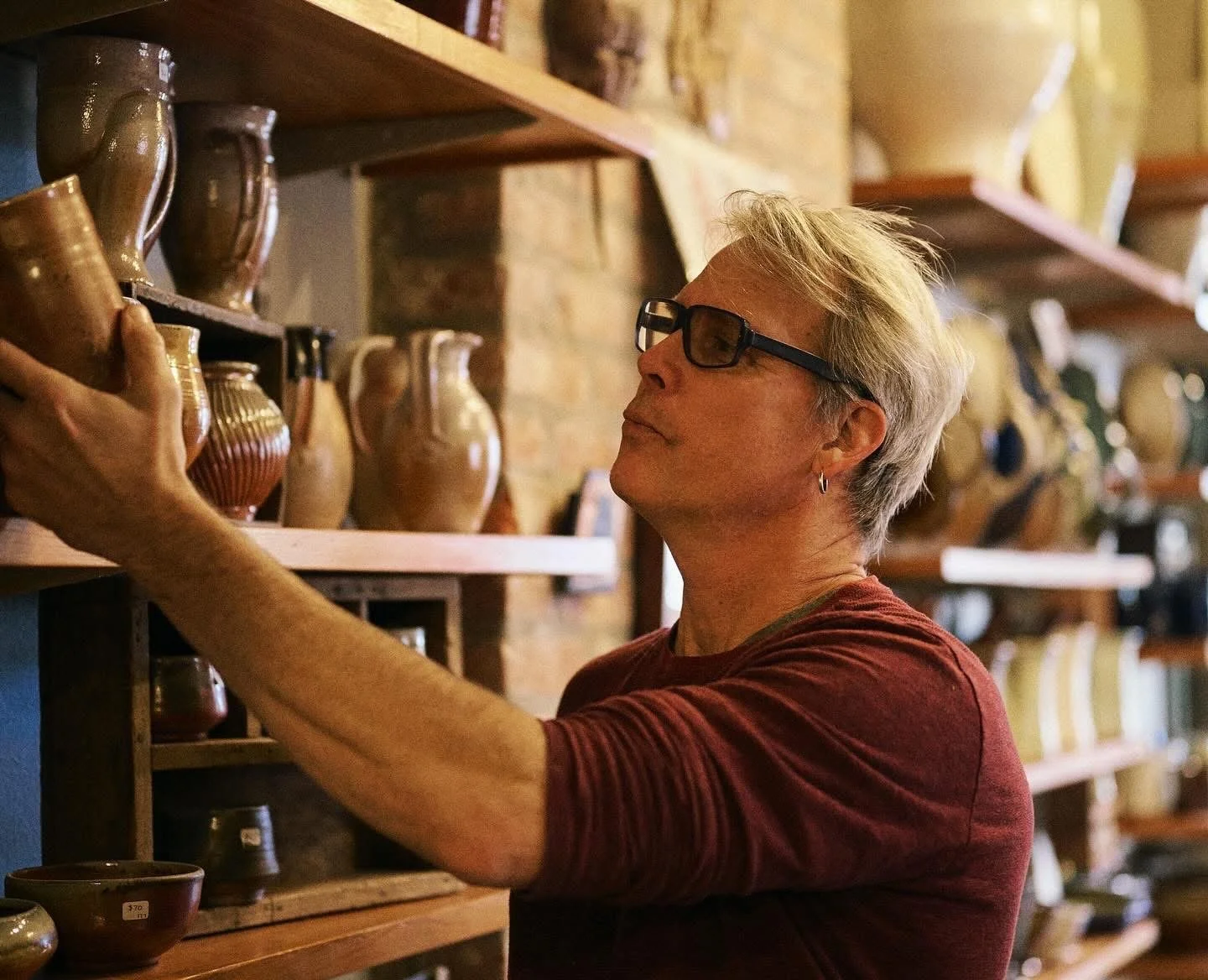Crafting Connection: Potsalot Pottery and the Story Behind Dakar’s Plates
Written by Keenan Goldsmith
At Dakar NOLA, every detail of the dining experience is shaped with intention, from the ingredients that fill each course to the plates and bowls that carry them. That is why our collaboration with Potsalot Pottery, led by artists and business owners Alex and Cindy Williams, feels like such a natural extension of who we are. Their story, like ours, is rooted in New Orleans, built on community, and guided by the belief that art and craft can transform the everyday into something extraordinary.
From Sculpture to Clay
Alex and Cindy first crossed paths as sculpture majors at Loyola University in 1991. At the time, their creative focus was on bronze casting. But as Alex puts it, “we knew the bronze work would put us in an early grave,” so they turned to clay, a medium that promised longevity, play, and possibility.
Their first studio sat above a coffee shop in the Lower Garden District, with no heat, no air, and no running water. Every morning, Alex carried two five gallon buckets upstairs for the day’s work. By evening, he often poured them back down the courtyard drain, or if it was too late, tossed the water out the window into the street. They sold their earliest pieces at art fairs and Christmas shows, decorating bowls with playful popcorn motifs or pitchers with oranges. It was scrappy, it was young, and it was theirs.
From those beginnings, Potsalot Pottery grew into a cornerstone of New Orleans’ creative community, a studio where utility and beauty have always shared the same space.
A Shared Language with Dakar
The connection between food and pottery is intimate, the plate, the hand, the bite. That is what drew Alex and Cindy into conversation with Chef Serigne Mbaye one afternoon over the backyard fence. He spoke about the meaning of the “Last Meal,” a dish deeply personal to him, and Alex immediately pictured a bowl made specifically for it. That bowl became the seed of Dakar’s collaboration with Potsalot.
From there, the partnership expanded. Alex and Cindy spent days at the restaurant, watching how dishes were plated and how service flowed. Together with Chef Serigne and Effie, they streamlined designs and refined color schemes until the dinnerware felt like an extension of the menu itself.
When you dine at Dakar, every plate, bowl, and vessel carries their fingerprints, literally. The Last Meal bowl remains the most symbolic, but the dinner plate with its three waves also holds deep meaning. Inspired by the stripes painted on Senegalese fishing boats and echoed in the Dakar logo, those waves tie together food, heritage, and place.
“The plates are charcoal black so the food pops,” Alex says. “Some are white so once again, the food pops. Our pieces reinforce the story Dakar tells through food. We help present the story without getting in the way of it.”
Process, Tradition, and Play
Behind each piece of pottery is a process as thoughtful as any kitchen’s recipe. Alex and Cindy designed their own clay body for strength, color, and function. Their glazes are mixed from natural ingredients, crushed rock, powdered sand, clay, metal oxides, each batch a little different, each demanding care and adjustment.
Firing is where craft meets community. Their five day wood kiln requires a dozen people to tend, feed, and stoke the fire, often with clay sourced from a dirt pit just north of New Orleans. This collaboration mirrors the restaurant world: long hours, teamwork, and trust in both tradition and improvisation.
Their influences range from Japanese and Korean pottery to African forms, American studio traditions, and even Cindy’s childhood memories of sculpting with banana tree flowers. Whether it is the subtraction based Kurinoki technique from Japan or the simple joy of throwing clay on the wheel, their work is a balance of history and invention.
A Community Beyond the Table
Like Dakar, Potsalot sees their work as part of something bigger. “Community allows for understanding and compassion,” Alex says. “We all need one another in order for us all to succeed.” That belief extends not only to their collaborations with chefs but also to the day to day rhythms of their shop.
Guests who dine at Dakar often wander into the pottery studio afterward, eager to talk about how food was plated, how the bowls felt in their hands, how the experience resonated. In those conversations, food and craft meet face to face, and the connection comes full circle.
Looking forward, Alex and Cindy are excited by new collaborations with local nonprofits, restaurants, and their own ever growing list of experimental ideas. But as they put it, the thing they are most excited about is simply tomorrow.
Everyday Art
For Alex and Cindy, the joy of their own work is something as simple as morning coffee on the porch in handmade mugs, their pets at their feet. It is a reminder that craft does not live only in galleries or restaurants. It lives in the rituals of daily life, in the mug, the plate, the bowl.
“To make the everyday a piece of art,” Alex says, that is their guiding philosophy.
At Dakar, we are proud that their art is woven into every guest’s experience. Each plate, each bowl, each wave and curve carries the same care, intention, and joy that we pour into the food. And when guests lift those pieces, we hope they feel what Alex and Cindy feel: pride, gratitude, and the overwhelming sense that every part of this experience belongs together.




